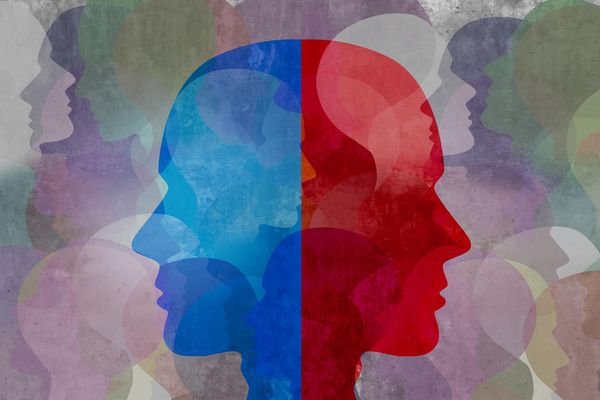The first week of October is Mental Illness Awareness Week and an important time to understand the state of our mental health and mental illness. Nearly all of us are affected by this condition, whether it be through our own, a friend's or a family member's state of mind.
It's estimated that in any given year, one in five adults faces mental illness. And it surfaces rather young, too: in half the cases, it begins by age 14 and 75 percent by age 24.
Feeling sad or down, confused or unable to concentrate are normal feelings that hit all of us at some point. But when these feelings don't improve on their own and begin to interfere with your physical or mental health, your relationships, your job or your everyday life, they may be more than that.
According to the American Psychiatric Association, major mental illnesses, like bipolar disorder or schizophrenia, don't just appear from nowhere. There are usually small changes in a person's thinking, feeling or behavior before the condition becomes full-blown.
That's why it's important to be aware of early warning signs of any mental illness, even if it's not major. Early intervention can help reduce the severity of mental illness or may help prevent it altogether.
Here are some warning signs:
- Suicidal thinking
- Excessive anger, hostility or violence
- Extreme mood changes—highs and lows
- Alcohol or drug abuse
- Changes in sex drive, sleep, personal care or appetite
- Inability to deal with stress
- Problems understanding situations or relating to people
- Social withdrawal
- Extreme agitation, anxiety, guilt or worry
- Apathy or a drop in functioning
- Feeling disconnected; a sense of unreality
- Illogical thinking
Causes of mental illness vary, ranging from things like brain chemistry and genes to environmental toxins or exposures before birth. If left untreated, the repercussions are far-reaching and serious. They can lead to legal and financial problems, poverty, homelessness, and even a weakened immune system, making you more vulnerable to infection and disease.
Having a relative (like a parent or a sibling) with a mental illness increases your risk of developing mental health problems. So does a chronic health condition, a traumatic experience, social isolation, stressful life situations (like divorce, death or financial problems), alcohol or drug use, a history of childhood abuse or neglect, brain damage or a serious brain injury.
Exercise is one example of a healthy, nondrug approach to treating depression, a form of mental illness. It helps improve your sleep and boost your self-esteem, two important ties to mental health. And there's more: According to experts at Harvard Medical School, when you exercise, your body releases endorphins, chemicals that promote a "feel good" sensation, which may help improve natural immunity and reduce pain perception. Another theory is that exercise helps stimulate norepinephrine, a chemical in your body that may directly improve mood.
There are plenty of resources to help support those with mental health challenges. Talking with your health care provider can be a good place to start.
To learn more and find support, you can visit the website for the National Alliance on Mental Illness (NAMI) or call its helpline at 800-950-6264.
For a screening test to help determine if you're experiencing signs of an underlying mental illness, visit mhascreening.org.
To find specialized treatment providers, go to findtreatment.samhsa.gov or call its 24/7 Treatment Referral Line at 800-662-HELP (4357).
Most importantly, remember that if you or someone you know is suffering from a mental illness, you are not alone. There is support, there are resources and there is hope. Proper treatment can help you lead a meaningful, productive and happy life.







